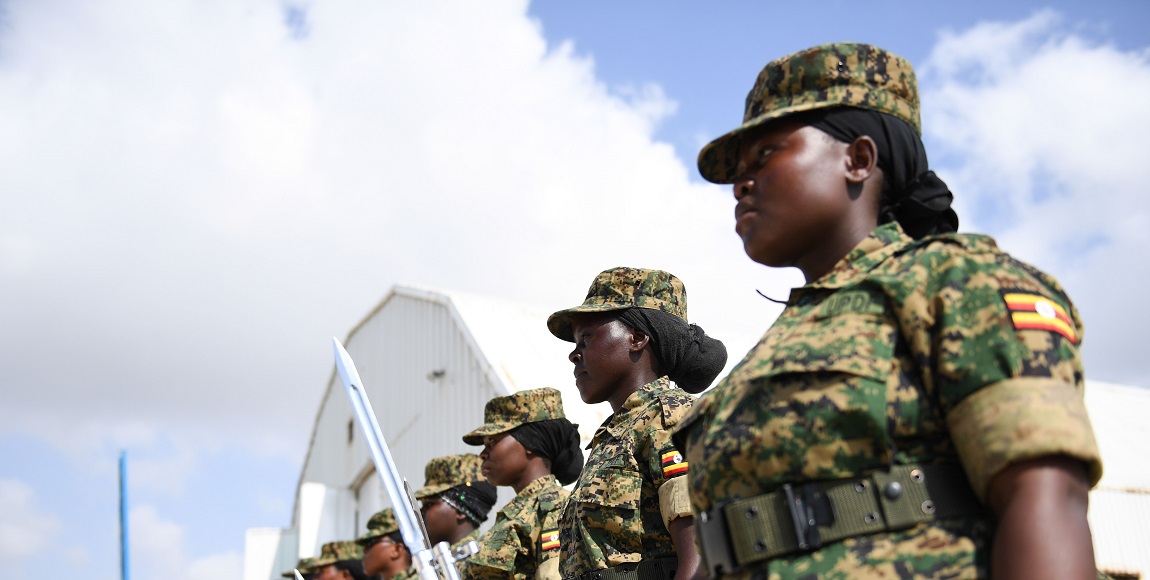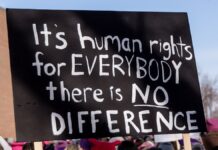
The United Nations recently recommended that countries increase the number of female peacekeepers in peacekeeping missions. Last month, during the 71st UN General Assembly in New York, UN Secretary General Antonio Guterres said deploying more women peacekeepers would result in “higher reporting of incidents and lower numbers of incidents overallâ€.
We set a target of recruiting 15% women as military observers and staff officers by Dec & 20% female @UNPOL officers by 2020 #UNGA pic.twitter.com/AMyAuBDVd0
— UN Peacekeeping (@UNPeacekeeping) September 20, 2017
But this call may be geared more at addressing the problem of reporting sexual abuse and not actually about preventing abuse by peacekeepers.
In 2000, the United Nations adopted a resolution which urged all member states to increase the participation of women in peace and security efforts. Resolution 1325 calls for special protection of women and girls from gender-based violence in situations of armed conflict, and the prosecution of those that carry out these attacks. Additionally the resolution calls for more women in peacekeeping operations and local police forces.
However, 17 years later, the levels of female participation in peacekeeping are still low while the abuse of women and girls in conflict continues. According to the UN’s own data, at least 55 UN peacekeepers were accused of sexual exploitation and abuse between January and July this year.
According to Séverine Autesserre, professor of political science at Barnard College, Columbia University, and an expert on peacekeepers, the most recent statistics show only 5% of UN peacekeepers were women, and most of those were deployed in non-combat positions. Female peacekeepers generally aren’t put into combat operations and are generally given jobs which are considered safer and less dangerous.
Autesserre told The Daily Vox that having female peacekeepers helps to promote norms around gender equality and shows that women can do the same jobs as men.
In 2015, in the Democratic Republic of Congo, where the UN has its largest mission, only 2% of peacekeepers were women.
The South African peacekeeping contingent in the DRC are considered the leader in women’s integration. It is the only peacekeeping group to have a gender adviser among the troops.
“Women fill every position,†said Major Steven Matodon, the public information officer for the South African brigade. “We don’t have a problem with our ladies; they can do whatever a man can do.â€
Minister of Defence and Military Veterans Nosiviwe Mapisa-Nqakula told the M&G they the department believed women are more capable of dealing with sexual abuse.
“We deploy a number of women as part of the peacekeeping force because we know women will be more sensitive‚ but also because women will feel more free to report incidents of abuse,†she said.
Despite this, the South African contingent in the DRC has the highest levels of sexual abuse accusations against them. In 2015, a UN report revealed that SA troops are amongst the worst sexual offenders amongst the peacekeeping troops.
And there have already been two cases of sexual violence against South African peacekeepers this year.
Liezelle Kumalo, a junior researcher in peace operations and peacebuilding at the Institute for Security Studies, says having more female peacekeepers does not necessarily mean the that sexual abuse by peacekeepers will stop – but it could mean better reporting when incidents of abuse do occur.
“Female peacekeepers do help because in most cases the women [in countries where peacekeepers operate] aren’t allowed to talk to men. Also women are attacked by men in uniform and won’t feel comfortable as a woman talking to another man because of the association,†she said.
While there are mechanisms in place to protect victims and prosecute perpetrators, the problem doesn’t just lie with reporting; it’s has to do with the justice process and ensuring accountability.
The impunity of the peacekeepers who commit crimes is especially high. If a peacekeeper is accused of a crime, they are supposed to be sent to their home country for prosecution. But justice is not always forthcoming. As Autesserre points out: “They are sent to the home country and they (the home country) don’t punish them.â€
Still, reporting mechanisms are important. If you don’t know about the abuse is going on, you can’t take other measures to curb the abuse.
Kumalo says getting cooperation from peacekeepers’ home nations is difficult. The United Nations and African Union do not have jurisdiction over countries.
Despite a UN resolution calling for contributing countries to recall the perpetrators and hold them accountable, this often doesn’t often take place, she says.
While there are mechanisms in place to protect victims and prosecute perpetrators, the problem lies with the justice process and actually ensuring accountability.
Upping the numbers of female peacekeepers won’t solve the UN’s problem of abuse. It’s not enough to simply improve reporting mechanisms. Stricter measures for ensuring that perpetrators are held accountable and that their victims get justice must be put into place.








